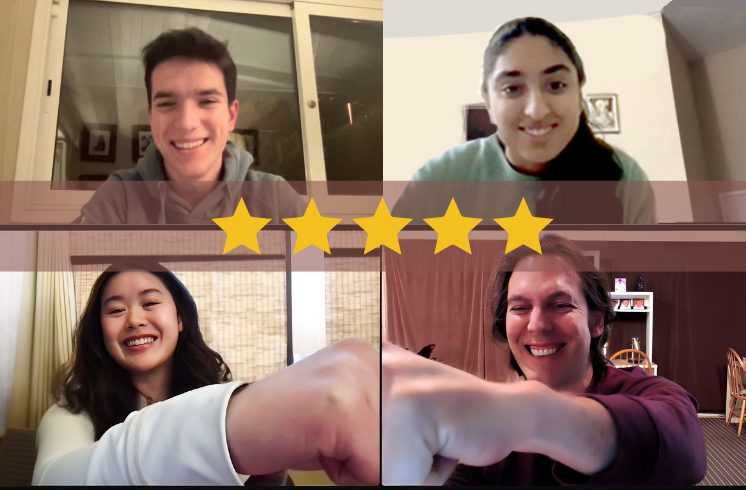Mr. Test Prep — My Approach
A Calm, Clear, High-Performance Test Prep System
Most students don’t need more worksheets or longer hours. They need a calmer mind, a clearer strategy, and a way to bring their best selves into the moment that matters.
For nearly 30 years, I’ve helped students raise their SAT, ACT, and PSAT scores using a diagnostic-driven, student-centered approach that builds confidence, clarity, and consistent improvement — without overwhelm.
My goal is simple: Help students access everything they already know on test day.
1. A Diagnostic-Driven System
We start with clarity, not volume.
Every student begins with a diagnostic that reveals:
- timing patterns
- accuracy gaps
- score leaks
- cognitive tendencies
- how they react under pressure
- where attention slips
- where strengths aren’t being used
This isn’t about judging a student — it’s about understanding how their mind works. A clean diagnosis prevents wasted effort and allows us to build a plan that is precise, efficient, and effective.


2. One-on-One Coaching Inside a Calm, Structured Environment
Personal attention in a grounded, two-hour session.
Even though students work in a shared two-hour session, all coaching is one-on-one.
I meet individually with each student to:
- review their work
- correct patterns
- adjust pacing
- repair timing breakdowns
- get them unstuck
- help them reset mentally
- reinforce clarity and confidence
The environment stays quiet and focused — not stressful or chaotic. Students learn how to reset quickly, an essential test-day skill.
3. High-Yield Practice, Not Busywork
Less overwhelm. More progress.
One of the biggest reasons students fail to improve in traditional tutoring is this: They don’t do the homework they’re assigned.
Not because they’re lazy, but because they’re:
- overwhelmed
- busy
- unsure where to start
- afraid of doing it wrong
- exhausted after school
And when homework doesn’t get done:
1. The teacher–student relationship absorbs the failure.
2. The student enters the real test knowing they didn’t follow through.
So I built a different system.
Everything that matters happens in session, with:
- immediate feedback
- calm structure
- real-time correction
- zero shame or overwhelm
Instead of worksheets, I assign only targeted, high-yield practice based on the diagnostic. Every minute of work is intentional, precise, and effective.
4. Why This System Works for Gifted but Inconsistent Students
Brilliant minds without the executive function to match.
Some of the highest-potential students I’ve worked with struggled in traditional test prep — not from lack of ability, but from lack of follow-through and executive function.
These are students who understand everything instantly… but procrastinate, avoid homework, or drift during long sessions.
Traditional homework-heavy models depend on at-home discipline, which sets these students up to fail.
My system removes that barrier entirely.
Because everything happens in session, with calm structure and immediate feedback, these students finally get through the work — and their talent shows.
These students often experience the biggest score jumps.

5. Training Calm Performance
Because the mind takes the test, not the textbook.
Most score loss comes from:
- overthinking
- freezing
- rushing
- perfectionism
- timing breakdowns
- emotional spikes
- self-doubt
These aren’t content problems — they’re performance problems.
I teach students how to:
- regulate themselves
- breathe and reset
- manage rising pressure
- trust what they know
- stay present under time constraints
This reduces anxiety and transforms test-day performance. Calm performance is often worth 100–200 points on its own.
6. Precision Strategy: Thinking Like the Test Maker
Better thinking → better accuracy.
Students learn to see the SAT/ACT through the eyes of the test makers:
- what each question is
- actually measuring
- what patterns repeat
- where the traps lie
- why wrong answers feel right
- how to pace each section
- how to move with clarity, not panic
This dramatically reduces careless errors and builds strong test-day judgment.
7. Personalized Plan & Session Cap
Every student gets what they need — no more, no less.
After the diagnostic and trial session, I create a personalized plan detailing:
- session frequency
- targeted areas
- timing focus
- test choice (SAT, ACT, or PSAT)
- recommended test dates
- the target scores we’re aiming for
- the recommended session cap
Strong students often need 12–15 sessions. Mid-range students land around 18–20. Students needing deeper rebuild land around 22–25.
The cap protects families from runaway costs and keeps the process grounded, efficient, and fair.
8. The Mr. Test Prep Strategy Ecosystem
Turning beginners into experts — one session at a time.
Test prep isn’t just content or timing. It’s a complete performance system.
Students move through a structured journey:
A. Beginner Phase — Learn the Strategies
Students gain access to my full video library, including:
- Bullseye Strategy
- Breaking the Mario Myth
- Rope, Not Snake
- Smarter Test Guesses
- A Smarter Way to Learn
- Master the Curve
- Test Maker’s Logic
- Click-and-Stick retention
- Smile, Laugh, Meditate
- Intention Setting
- Cultivating the Zone
B. Novice Phase — Coach’s Commentary
In session, I guide them through real test sections using the strategies:
- “Here’s where Rope, Not Snake applies.”
- “This was a Mario Myth moment.”
- “Freeze here? Try Smile, Laugh, Meditate.”
- “Did you delay your guess?”
- “How much time do you have left?”
- “How many have you skipped?”
C. Expert Phase — Strategy Integration in Real Time
Mastery comes from:
- real-time correction
- repeated exposure
- pattern recognition
- diagnostic feedback
- emotional regulation
- cross-strategy synergy
In every session, I help students integrate strategies into timing, pacing, decision-making, clarity, calm, and confidence.
9. A New Evolution: Coached Extended Test Sessions
A better alternative to full-length practice tests.
The new digital SAT, PSAT, and ACT are just over two hours long — nearly identical to a Mr. Test Prep session.
Instead of weekend-long full practice tests with no guidance, students now work through entire tests inside session, with me coaching them as they go.
This gives students:
- better pacing
- immediate correction
- real-time adjustments
- no wasted effort
- higher-quality practice
- stronger test-day readiness
10. The Goal: The Closest Possible Version of Their Best
Not perfection — presence.
I can’t promise your student will get a perfect score. No honest teacher can.
But I can promise this: When a student learns how to stay calm, reset quickly, manage timing with confidence, and trust themselves, they move dramatically closer to their true potential — often further than they believed possible.
That’s the heart of my method. That’s what sets Mr. Test Prep apart.


Our Testimonials : 185 to Date

Maria Avalya
Middle College 2014
UCLA 2018
Julia López
Lincoln High School (San José) ‘13
Georgetown University ‘17
HOYA SAXA!
Guillermo Lopez
Lincoln High School '14
Sanat Barabra College '18
I can clearly remember Mr. Test Prep’s response when I said, “I’m no good at math and science.” He said, “Don’t think that way! These questions are easy if you think of them as easy. Let me break ‘em down for you…” Ever since then, the ACT has not intimidated me with the daunting math and science sections. His tricks to make sure I didn’t make any “silly” mistakes even increased my scores to near-perfection in the subjects that I was stronger in – reading, writing, and English! Additionally, the group testing environment was insanely helpful in practicing what to expect during test day. Mr. Test Prep’s unpredictable outbursts of songs and people’s sneezing and coughing inevitably allowed me to block out the irrelevant and focus on the test. I also still do his meditations today before a big event or test! They have assisted me greatly in becoming more centered, and have me diving into any task headfirst with steady hands and tranquility.
Not only did Mr. Test Prep increase my confidence in test taking, but he also helped boost my overall determination in conquering whatever may stand in my way – including math and science! The results of Mr. Test Prep’s tutoring are not merely numbers. If you are seeking someone who is more than a tutor – someone who is a role model, friend, and a hilarious mentor, then Mr. Test Prep is for you!
Veronica Louise Mendoza (Mountain View, CA)
Sacred Heart Preparatory, Class of 2015
UCLA, Class of 2019
Maxwell "M-Bizzle" Bernstein
PALY 2014
Tufts University 2018
Sign Up For A Free Trial Session
For More Details Click Here





